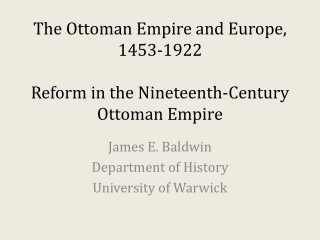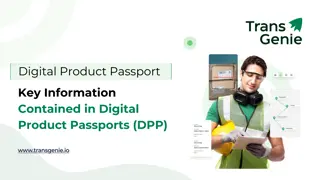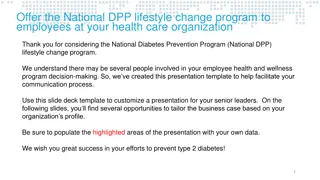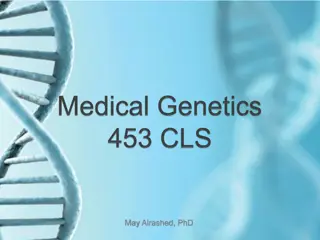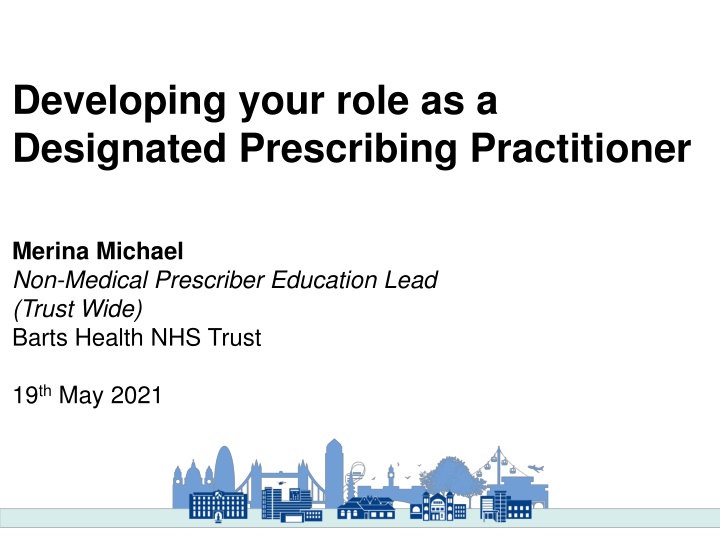
Developing Your Role as a Designated Prescribing Practitioner: Integrating Competencies and Establishing Support Systems
Enhance your role as a Designated Prescribing Practitioner through integrating competencies into day-to-day practice, setting up support systems, and implementing effective supervision. Explore the underpinnings and consider arrangements for practice supervision. Join the Non-Medical Prescriber Conference to support prescribers in reaching their full potential within the Barts Health NHS Trust educational framework.
Download Presentation

Please find below an Image/Link to download the presentation.
The content on the website is provided AS IS for your information and personal use only. It may not be sold, licensed, or shared on other websites without obtaining consent from the author. If you encounter any issues during the download, it is possible that the publisher has removed the file from their server.
You are allowed to download the files provided on this website for personal or commercial use, subject to the condition that they are used lawfully. All files are the property of their respective owners.
The content on the website is provided AS IS for your information and personal use only. It may not be sold, licensed, or shared on other websites without obtaining consent from the author.
E N D
Presentation Transcript
Developing your role as a Designated Prescribing Practitioner Merina Michael Non-Medical Prescriber Education Lead (Trust Wide) Barts Health NHS Trust 19thMay 2021
The role of the Designated Prescribing Practitioner Integrating the role into day to day practice
What's in the Name ? Designated Medical Practitioner Designated Prescribing Practitioner Practice Assessor (plus a named practice supervisor) Practice Educator
2nd NON-MEDICAL PRESCRIBER CONFERENCE Setting the vision for NMP Supporting prescribers to reach full potential Education Academy, Barts Health NHS Trust
Implementation of role as Designated Prescribing Practitioner Programme providers DPPs NMP Trainees Employers / Organisations
1.Programme Providers Assess competence of DPPs Inform the development of training for DPPs Support provision of feedback to DPPs Academic Assessors
Arrangements for Practice Supervision Appropriate arrangements for Practice Supervision are in place. Assure that NMP Trainee will be fully supported in development as a prescriber. Establish Practice Supervisor and Practice Assessor, Responsible for period of Supervised Practice. If one person will undertake both roles, please ask them to complete the Practice Assessor section only. Please note that, in such circumstances, A nominated signatory within your employing organisation must provide reasons for this situation. Applicants undertaking the programme on an individual or self- employed basis, statement of support from a senior manager governance arrangements , statement of support.
Support for PA/PS/DPP/PEs Information Handbook Initial communication to discuss the role and responsibilities Telephone and email contacts provided Communication between Academic Assessor and Practice Assessor at midway point and summative point, to be documented by the Academic Assessor.
2. PA/PS/DPP/PEs Self assessment Demonstrate meet required competencies Identify areas for development CPD and revalidation
The four broad competency areas The ability to create an environment for learning Personal characteristics Teaching knowledge Teaching skills
PA/PS/DPP/PEs Have a minimum of 3 years experience as an independent prescriber. Is registered with the relevant regulatory body (NMC, GPhC or HCPC) Is currently prescribing in their clinical role, we recommend at least once a week Has some experience or training in teaching and/or supervision in clinical practice Is able to support the student over 6 months and commit to a minimum of 30 hours of direct observation of the student
Practice Supervisors Requirements for : Provide evidence of current knowledge and experience of the student s intended field of prescribing practice Understand the competencies and programme outcomes they are supporting students to achieve Receive ongoing support to prepare, reflect and develop for effective supervision and contribution to, student learning and assessment Appropriately raise and respond to any concerns about student conduct and competence and be supported in doing so
The Practice Assessor Normally be a registered medical practitioner or be registered on the same part of the NMC register as the student they are assessing Provide evidence of current experience of the student s intended field of prescribing practice Understand the student s learning and achievement in theory and the competencies and programme outcomes the student is aiming to achieve Undertake preparation or evidence prior learning and experience that enables them to demonstrate achievement of the following minimum outcomes: Interpersonal communication skills, relevant to student learning and assessment. the conduct of objective, evidence-based assessments of students, the provision of constructive feedback to facilitate professional development in others knowledge of the assessment process and their role within it Receive ongoing support and training to reflect and develop in their role Demonstrate the proactive development of their professional practice and knowledge to fulfil their role
3. NMP trainees Identify suitable DPP Understand the role of the DPP Demonstrate and document their professional development as a prescriber in a clinical practice learning log. Document meetings with their Practice Supervisors and ensure this is available to the Practice Assessor at the designated meetings. Be aware of the systems in place to provide feedback and support
University entry criteria For NMPs Current registration, Experience, Evidence of the ability to study at the academic level. Applicants must also provide: Written confirmation of support from their employer Time to attend University, Access to learning opportunities and protected time with Practice Supervisor and Practice Assessor. The applicant can demonstrate safe and effective practice in relation to: Clinical/health assessment Diagnostics/care management Planning and evaluation of care If self-employed a comprehensive professional reference arrangements made for practice supervision and assessment. Written confirmation from the Practice Supervisor and Practice Assessor
Confirmation from Supporting organisation The identified Practice Supervisor and Practice Assessor have Skills and experience in a practice learning role Demonstrate the required regulatory body and University criteria to support and assess students Have been qualified as prescribers for a minimum of three years Prescribe regularly Fully supported by the service organisation . Exceptional circumstances Insufficient nurse prescribers with the relevant skills, knowledge or experience to Staffing challenges
4. Employers/ Organisations Support governance processes around period of learning in practice Assist prospective NMPs to identify DPP
The aims of practice experience: To develop an analytical and critical approach which will promote creative and innovative practice To enable students to develop the ability to identify their own individual learning needs and to develop the skills of reflection in order to appraise learning outcomes To enable students to work with the PA/DPP/PE that promotes a shared approach to practice experience in order that identified learning needs can be met
The Designated Prescribing Practitioner Personal Characteristics Professional Skills and Knowledge Teaching and Training Skills Competencies DPPs should have prior to taking on role General competencies- not specific to role Support HEIs in assessing suitability to take on role
Learning Process At the beginning Mid-way Summative points
Learning Agreement The learning agreement should include statements about: Learning needs / targets in relation to past experience and the learning outcomes Strategies to be employed by the student to achieve the performance criteria required for each domain The resources needed to achieve the performance criteria The ways in which the student will monitor and evaluate
Examples of evidence of development: Observe how the PA conducts Consultation with the patient. Development of the subsequent management plan. Following this, observation and assessment of student s ability to carry out patient consultations, suggested clinical management and prescribing options, which can then be discussed with the PA. Allow in depth discussion and analysis of management plans using random case analysis approach, when patient care and prescribing behaviour can be examined further. Reflect on consultations, encouraging critical thinking and reflection
Case studies-PS/ PA The NMP Trainee can have multiple PSs /PA Discussion While the NMP Trainee can work with one PS / PA on multiple occasions, Discussion
Case studies PS/PA PS/PA is/ NOT Obliged to work with students for full 6 months. Discussion Practice Supervisors will have the opportunity to collaborate with PA/DPP/PE and have contact with Academic Assessors. Discussion
Structure of NMP training 1. Consultation and decision-making 2. Assessment of the patient across the systems 3. Basic and Applied Therapeutics 4. Principles and methods of monitoring medicines 5. Evidence-based practice and clinical governance in relation to prescribing 6. Legal, policy, professional and ethical aspects 7. Prescribing in the public health context
Learning Outcomes Knowledge and Understanding: Patient management Intellectual Skills: safe and competent Prescribing Practical Skills: prescribing decisions Transferable Skills: Ethical and legal responsibilities
Factors Promoting the Implementation of NMP 1) Clinical supervision 2) Continuing professional development 3) Good inter professional relationships 4) learning culture 5) Seen as enhancing service efficiency rather than altering the structural organization of care.
Q & A Supporting prescribers to reach full potential Education Academy, Barts Health NHS Trust

